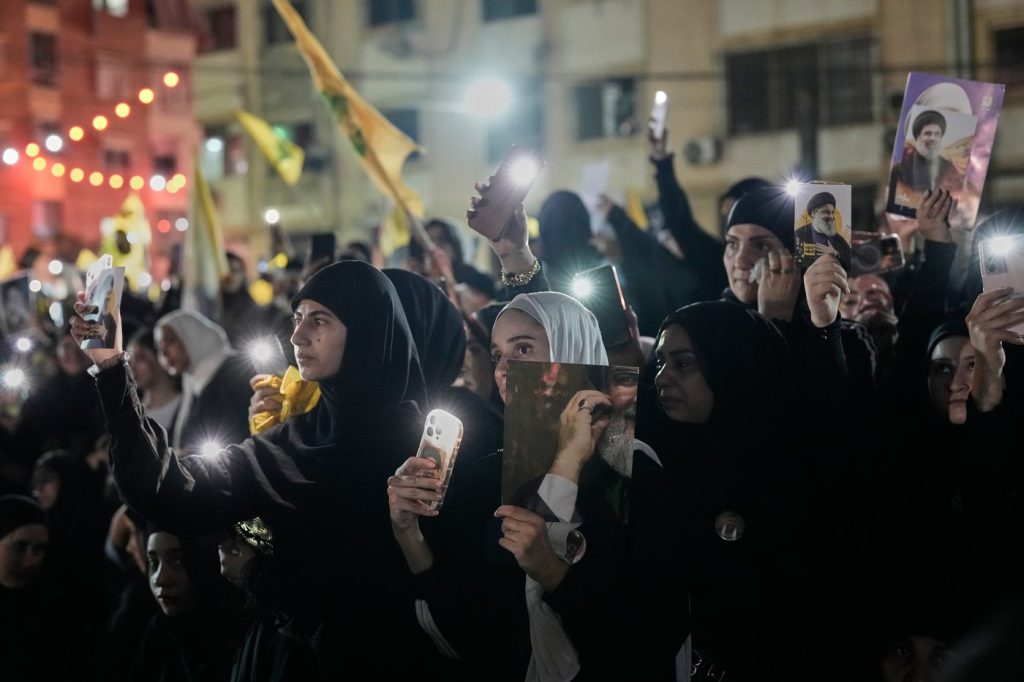BEIRUT (AP) After suffering significant military and political blows during its recent war with Israel, including the assassination of its long-time leader, Hassan Nasrallah, Hezbollah is reported to be regrouping. The war, which saw massive Israeli airstrikes targeting key Hezbollah positions in Beirut, left the militant group weakened and prompted critics to declare its days as a dominant player in the region over.
One year after Nasrallah's death on September 27, 2024, many observers, including Hezbollah's own officials, acknowledge that the organization is working to reorganize itself. Mohammed Fneish, a senior political figure within Hezbollah, described the loss as painful but emphasized that the group is resilient, capable of quickly filling leadership voids and continuing its confrontational stance.
Contrarily, an anonymous Israeli military official noted a "considerable" decline in Hezbollah's influence and asserted that the likelihood of a large-scale attack against Israel had diminished. However, the official conceded that Hezbollah is attempting to rebuild its capabilities, albeit with limited resources.
Despite the loss of senior leadership and crucial communication channels, Hezbollah actively engaged when Israeli troops invaded southern Lebanon shortly after the outbreak of hostilities in October 2023. Following a U.S.-brokered ceasefire in late November, Israel had secured more territory than before the conflict, and airstrikes targeting Hezbollah have continued almost daily.
Hezbollah also faced logistical challenges when it lost a vital supply route from Iran after Bashar Assad's government in Syria fell to rebel forces in December 2023. Fneish admitted that this was a blow to Hezbollah's "strategic depth." Meanwhile, the Lebanese government pledged to disarm the group by year's end, a demand supported by the U.S. and Saudi Arabia, which Hezbollah has rejected outright.
Hezbollah's opponents have accused the group of being disconnected from reality, with Lebanese lawmaker Elias Hankash urging it to disarm and function solely as a political entity. U.S. envoy Tom Barrack warned, however, about underestimating Hezbollah's capacity to rebuild. He claimed that Hezbollah is allegedly receiving up to $60 million monthly from undisclosed sources, despite international funding disruptions.
Founded in 1982 in response to Israel’s invasion of Lebanon, Hezbollah evolved into one of the region’s most formidable armed factions. The latest conflict began a day after a Hamas-led attack on Israel on October 7, 2023, prompting Hezbollah to launch rocket attacks on Israel from Lebanon as a supportive action for Hamas.
In September 2024, amidst escalating hostilities, Israel intensified its military campaign, which resulted in the deaths of Hezbollah commanders, including Nasrallah himself, who was killed in an airstrike that dropped over 80 1-ton bombs on a location where he was meeting with high-ranking officials. Following his assassination, Hashem Safieddine was named the new leader, though many believe Naim Kassem, the deputy designated as his successor, lacks the charisma Nasrallah possessed.
The group has since attempted to close intelligence gaps that led to successful targeting by Israeli forces. A Hezbollah official revealed that the organization is now relying less on technology to communicate, having learned from breaches in their systems, including Israel’s infiltration of their internal communications network.
Hezbollah's weaponry and disarmament continue to be contentious issues within Lebanon. Rising pressure for Hezbollah to disarm, coupled with delays in post-war reconstruction, has left many Shiite supporters feeling marginalized. Nevertheless, there is a rallying effect as they perceive external threats. Many in the community who once favored disarmament now advocate for maintaining their weapons in lieu of Israel’s ongoing aggression in the region.
As the Lebanese military grapples with internal issues and underfunding, a western diplomat suggests that the state is in a paradox regarding disarming Hezbollah. The Lebanese Army is ill-equipped to confront a battle-ready Hezbollah, and the situation remains complex.











